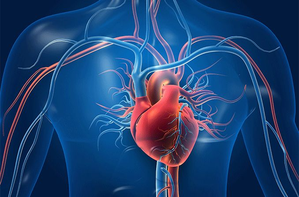New York, Dec 22 (IANS) Heart muscle can regenerate after failure in some people with artificial hearts, an international research team has found.
The team co-led by a physician-scientist at the University of Arizona College of Medicine – Tucson’s Sarver Heart Center in the US found that a subset of artificial heart patients can regenerate heart muscle, which may open the door to new ways to treat and perhaps someday cure heart failure.
There is no cure for heart failure, though medications can slow its progression. The only treatment for advanced heart failure, other than a transplant, is pump replacement through an artificial heart, called a left ventricular assist device, which can help the heart pump blood.
“Skeletal muscle has a significant ability to regenerate after injury. If you’re playing soccer and you tear a muscle, you need to rest it, and it heals,” said Hesham Sadek, chief of the Division of Cardiology at the University of Arizona College of Medicine – Tucson’s Department of Medicine.
“When a heart muscle is injured, it doesn’t grow back. We have nothing to reverse heart muscle loss,” Sadek said in a paper published in the journal Circulation.
Sadek led a collaboration between international experts to investigate whether heart muscles can regenerate.
The project began with tissue from artificial heart patients provided by colleagues at the University of Utah Health and School of Medicine led by Stavros Drakos, a pioneer in left ventricular assist device-mediated recovery.
The investigators found that patients with artificial hearts regenerated muscle cells at more than six times the rate of healthy hearts.
“This is the strongest evidence we have, so far, that human heart muscle cells can actually regenerate, which really is exciting, because it solidifies the notion that there is an intrinsic capacity of the human heart to regenerate,” Sadek said.
It also strongly supports the hypothesis that the inability of the heart muscle to ‘rest’ is a major driver of the heart’s lost ability to regenerate shortly after birth. It may be possible to target the molecular pathways involved in cell division to enhance the heart’s ability to regenerate, said the study authors.
–IANS
na/






























